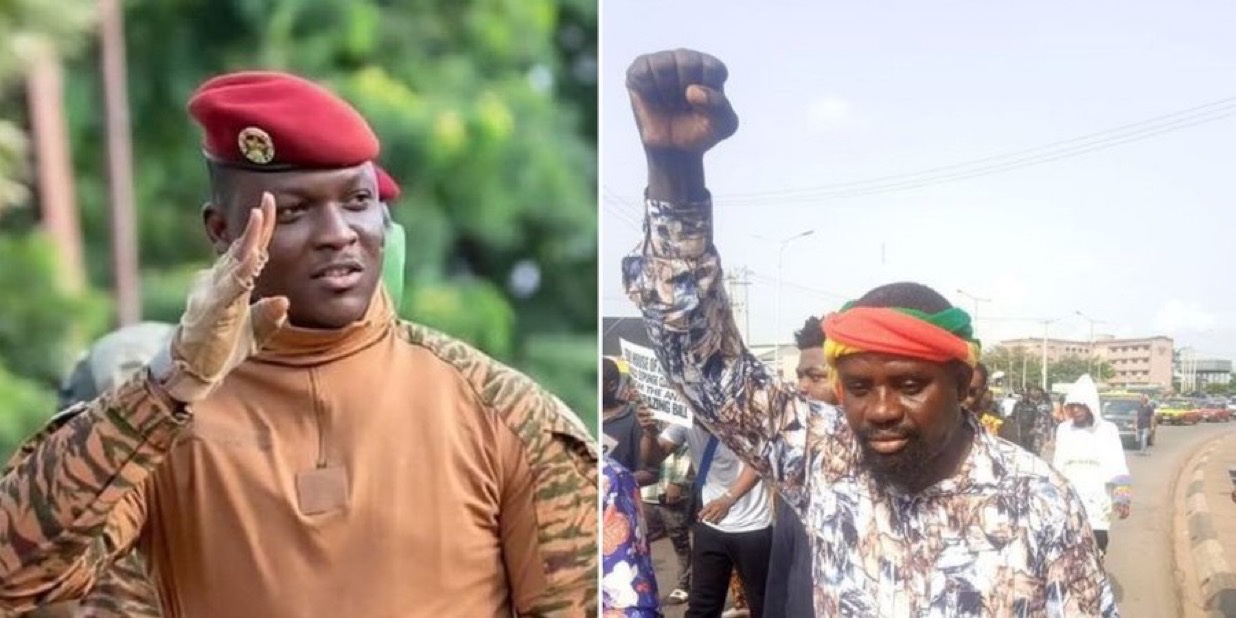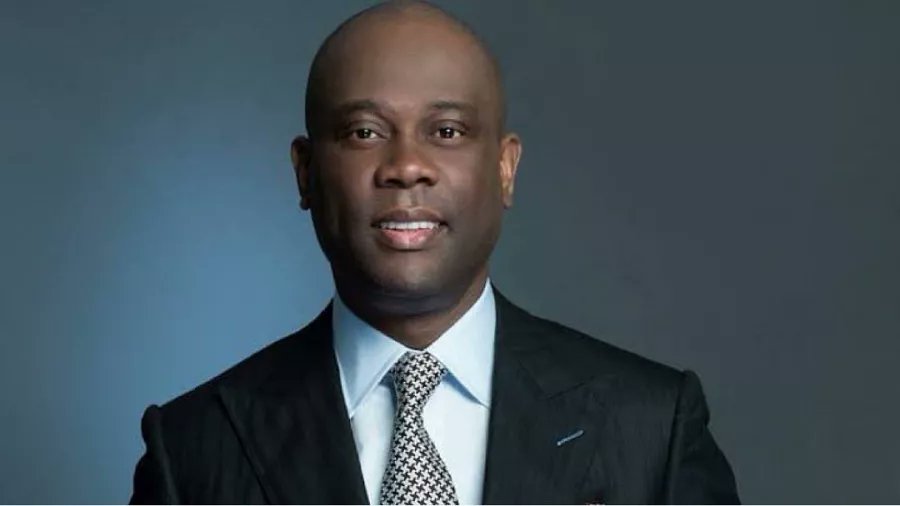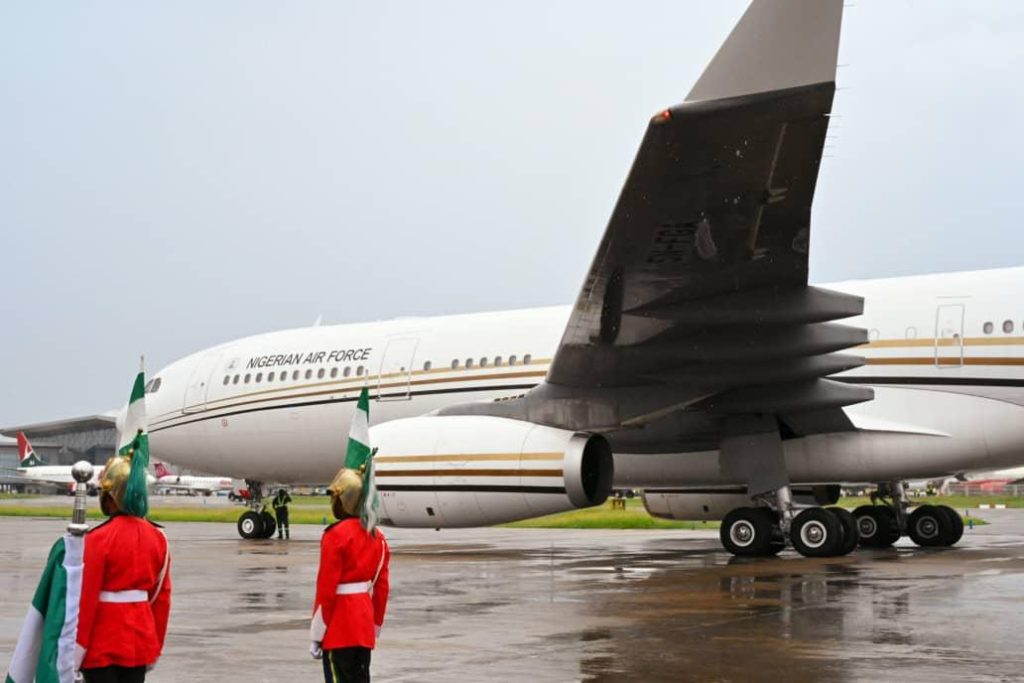
DSS Detains Kola Edokpayi in Benin City for Supporting Burkina Faso’s Ibrahim Traoré

In a startling development, operatives of Nigeria’s Department of State Services (DSS) arrested activist Kola Edokpayi in Benin City, Edo State, on Saturday, May 3, 2025.
The arrest stems from Edokpayi’s vocal support for Burkina Faso’s revolutionary leader, Captain Ibrahim Traoré, and his plans to organize a Pan-African solidarity rally in Traoré’s honor.
This incident has sparked widespread outrage and reignited concerns over Nigeria’s shrinking space for free expression, with many questioning the motives behind the DSS’s actions and the broader implications for activism in the country.
Kola Edokpayi, a prominent figure in the Talakawa Parliament, a grassroots movement advocating for the marginalized, was reportedly taken into custody due to his public endorsement of Traoré, Burkina Faso’s interim president since a 2022 coup.
Traoré, a military officer born in 1988, rose to power after ousting his predecessor, Paul-Henri Sandaogo Damiba, in a bloodless coup, citing frustration with rampant corruption and insecurity in Burkina Faso.
Traoré’s leadership style, heavily influenced by Marxist and Pan-African ideals, has positioned him as a polarizing figure in West Africa.
His recent push for a federation with Mali and Guinea, alongside a shift away from traditional Western alliances, has raised eyebrows across the region, potentially alarming Nigerian authorities who fear the spread of revolutionary sentiments that could destabilize the already fragile West African geopolitical landscape.
The arrest has drawn sharp criticism from activists and rights groups. Comrade Hafiz Lawal, the Edo State coordinator of the Take It Back movement, described the detention as “unjustifiable and a gross abuse of power,” arguing that Edokpayi’s actions do not constitute a crime under Nigerian law.
Lawal pointed to Sections 38, 39, and 40 of the 1999 Nigerian Constitution, which guarantee freedom of thought, expression, and association, asserting that supporting a foreign leader like Traoré does not warrant arrest.
He accused the DSS of using state machinery to silence dissenting voices, a tactic that aligns with Nigeria’s troubling history of suppressing free speech.
This incident is not an isolated one. Nigeria has long grappled with balancing the regulation of public discourse and preserving fundamental rights.
A 2020 Human Rights Watch report highlighted the DSS’s pattern of human rights violations, including arbitrary arrests, detention without trial, and even torture.
The report noted that Nigerian authorities often exploit concerns about hate speech or national security to justify crackdowns on free expression, a trend that appears to be continuing with Edokpayi’s arrest.
Social media, a vital platform for shaping public discourse in Nigeria, has increasingly become a battleground, with the government attempting to control narratives that challenge its authority.
Public reaction on platforms like X reflects widespread frustration. Many Nigerians see Edokpayi’s arrest as emblematic of a broader issue: the government’s prioritization of silencing dissent over addressing pressing challenges like banditry and kidnapping, which continue unabated.
Some users pointed out the irony of the DSS targeting an activist for expressing solidarity with a Pan-African leader while failing to apprehend criminals who openly flaunt their activities online.
Others questioned the legality of the arrest, arguing that supporting Traoré, a leader advocating for African unity and self-reliance, should not be criminalized.
The arrest also highlights the complex dynamics of Pan-Africanism in modern Africa. While the ideology, which promotes solidarity and integration across the continent, has historically inspired movements for independence and unity, it has also been viewed with suspicion by some governments.
Traoré’s vision of a federated West Africa, coupled with his rejection of Western influence, may be perceived as a threat by Nigerian authorities wary of revolutionary ideas spreading to their borders.
Edokpayi’s detention, therefore, serves as a stark reminder of the challenges activists face in advocating for regional solidarity in a climate of political repression.
As of now, the DSS has not released an official statement on the arrest, leaving many questions unanswered. However, this incident underscores a troubling trend in Nigeria: the erosion of democratic freedoms under the guise of maintaining stability.
For activists like Edokpayi, the fight for free expression and Pan-African solidarity continues to come at a steep personal cost, raising urgent questions about the future of dissent in Nigeria.


